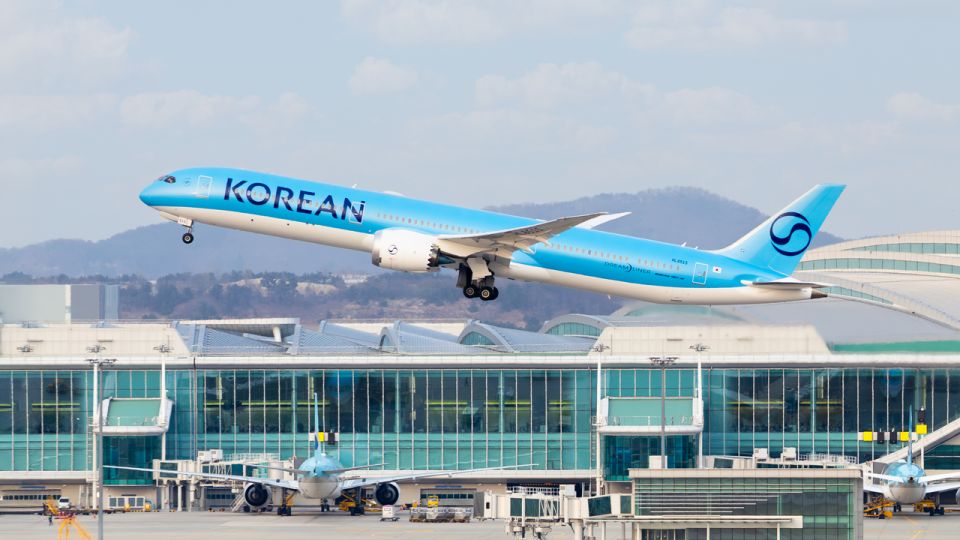October 1, 2025
SEOUL – Korean Air on Tuesday unveiled a revised mileage integration plan as part of its merger with Asiana Airlines, presenting fair conversion rates and a 10-year grace period as central to its commitment to consumer fairness and regulatory compliance.
After months of deliberation, the national flag carrier announced two distinct conversion ratios — a 1-to-1 exchange for flight-accrued miles and a 1-to-0.82 rate for miles accumulated through credit card partnerships.
Following consultation with South Korea’s Fair Trade Commission, Korean Air explained that the flight-based ratio reflects the similar accrual structures of both airlines’ flight mileage systems, while the discounted rate for partner miles accounts for differences in underlying acquisition costs.
Under the new proposal, members may convert their full Asiana mileage balance into Korean Air’s frequent-flyer program, Skypass, at any point during the 10 years after integration.
During this period, the miles can be redeemed under Asiana’s current chart for Korean Air economy and prestige class award tickets, while first class awards — never offered under Asiana’s program — will not be available for converted miles.
In addition to Asiana’s existing network, members will gain immediate access to 59 Korean Air routes, including Lisbon, Amsterdam, Auckland and Washington. Other ways to redeem miles include covering up to 30 percent of airfare or exchanging them for duty-free vouchers and merchandise.
“Under the integration plan submitted to the FTC, Korean Air will work to make mileage use more convenient and provide greater choice for consumers,” a company official said.
The revised plan — widely seen as the final hurdle before full integration — was filed on Thursday following the FTC’s rejection of the airline’s initial proposal in June over concerns about insufficient detail and fairness in conversion ratios and redemption options.
The regulator said at the time it had immediately requested revisions, calling for closer alignment with the benefits Asiana had provided consumers.
Regarding the new submission, the antitrust regulator will hold a two-week public consultation before issuing a final decision. An FTC official noted that the proposal could affect the full merger timeline, which is currently targeted for January 2027.
It remains unclear how much impact the new mileage integration plan will have on Korean Air, as mileage is recorded as a liability on the company’s balance sheet. According to a regulatory filing, Korean Air reported 2.7 trillion won ($1.9 billion) in deferred revenue at midyear, while Asiana Airlines reported 929.3 billion won.
“The effects of the mileage integration will be carefully reviewed in accordance with accounting standards and ultimately reflected in the company’s financial statements following an external audit,” the company official said.
Korean Air’s integration strategy also reshapes the loyalty membership landscape.
Asiana’s four loyalty tiers — Platinum, Diamond Plus, Diamond and Gold — will be matched to equivalent Skypass tiers with their validity preserved. To accommodate the changes, Korean Air will expand its own program by introducing a fourth tier, Morning Calm Select.
Once miles are converted, or after the 10-year period ends, member status will be recalculated using a combined total of flown miles on both Korean Air and Asiana, the airline said.


